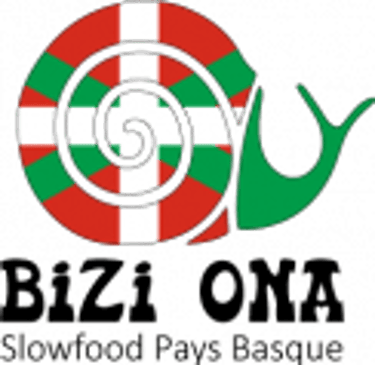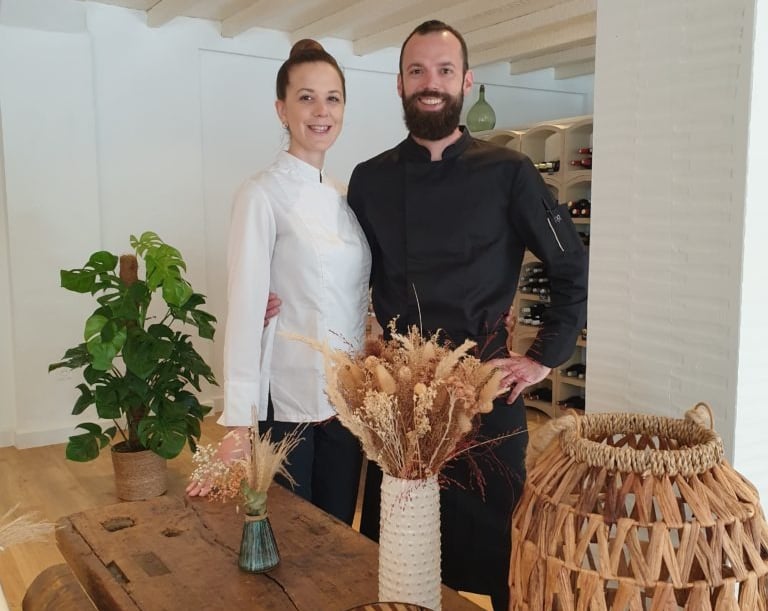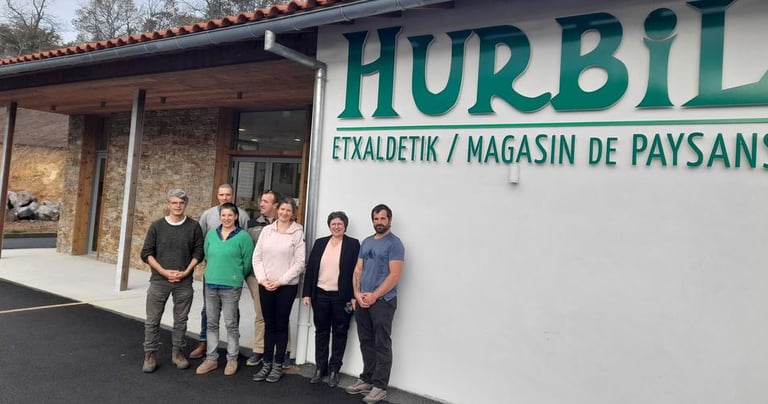Aujourd’hui, plus que jamais, nous entendons créer du lien entre producteurs, restaurateurs et consommacteurs et notre patrimoine culturel.
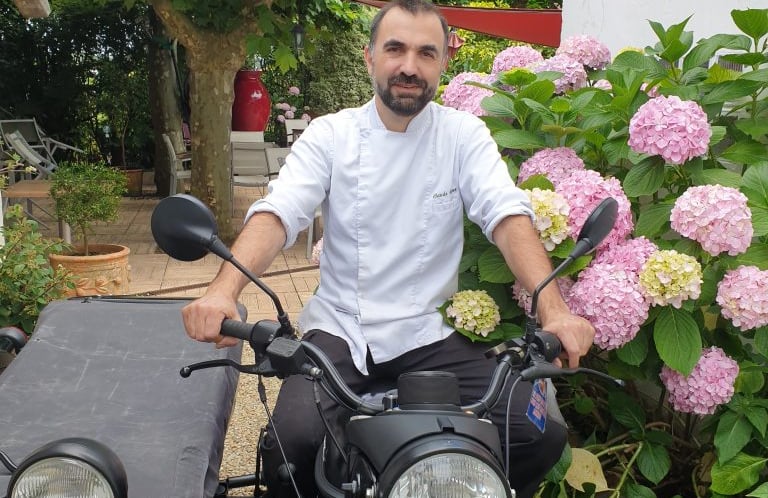

Le chef Paul Dubertrand sera vous surprendre avec une cuisine d'instinct, innovante et de saison au restaurant Le Poinçon à Guétary
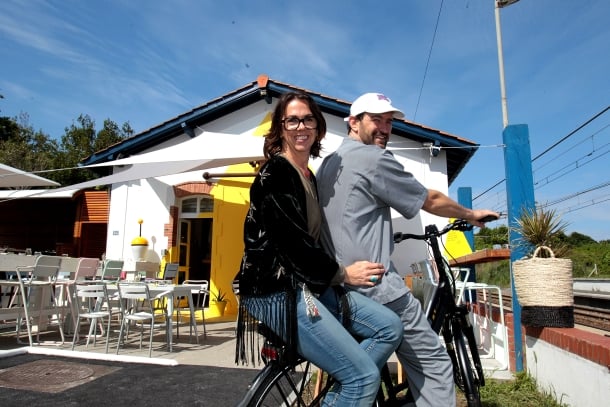

Claude Calvet chef du restaurant Gétaria à Guétary est trés locavore et trés Slow Food dans le choix de ces Producteurs.
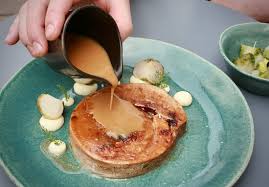

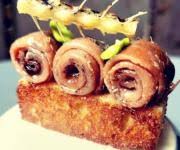

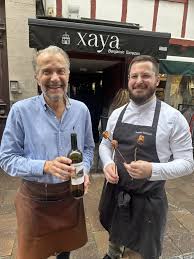

Une cuisine locavore, slowfoodienne, bonne, propre et juste. L'image de la maison, raffinée mais sans esbroufe, inventif et subtile.
L'histoire du restaurant Gamia remonte à ses origines en tant que ferme exploitée par les grands-parents de Bruno JAURIBERRY, située entre les vallées de l'Ostibaret et de Garazi. Ce lieu de passage était fréquenté par les agriculteurs qui se rendaient aux marchés des deux vallées. Ils faisaient une pause au col de Gamia, donnant ainsi l'occasion à Joanes et Margitta, les propriétaires de la ferme, de leur offrir un verre et un repas à leur table.
En 1968, lors du remembrement, la ferme de Gamia devint plus accessible grâce à une route départementale. C'est à ce moment que Joanes et Margitta eurent l'idée de diversifier leur activité en créant un café et un restaurant. Leur fils, Jean Louis, et son épouse Nicole prirent ensuite la relève, développant l'entreprise en ajoutant un hôtel de 8 chambres offrant une vue magnifique sur la vallée de Garazi.
Bruno JAURIBERRY a grandi au sein de cette ambiance chaleureuse et de la cuisine familiale dès son plus jeune âge. Il savait dès lors qu'il reprendrait un jour l'affaire de ses parents, c'est pourquoi il décida de se diriger vers des études en cuisine. En 2003, Bruno quitta "le Chapon Fin" à Bordeaux pour devenir le chef de Gamia.
Depuis qu'il a pris les rênes du restaurant, Bruno s'est efforcé de réhabiliter les lieux tout en préservant l'esprit familial transmis par son grand-père (Aitatxi), son père (Aita), sa grand-mère (Amatxi) et sa mère (Ama). Ainsi, Gamia perpétue sa longue tradition d'accueil chaleureux et de cuisine savoureuse, tout en restant fidèle aux valeurs et à l'héritage familial.

Bistro, bar à Vins, lieu de vie. Endroit incontrournable de la vie Cibourienne.
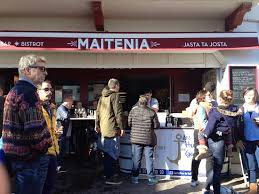

Menu changeant tous les jours, 0 km et fraicheur. Bistro Bon, propre et juste.
Nicolas Bouchard nous entraine avec lui dans un voyage gourmand.
Entre Bistronomie, restaurant et cuisine de voyage le Patxamama est un endroit à découvrir à Bayonne.
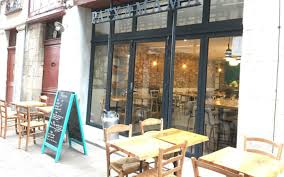

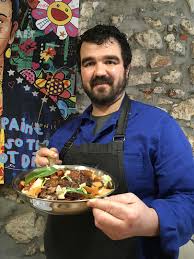

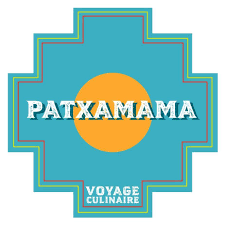

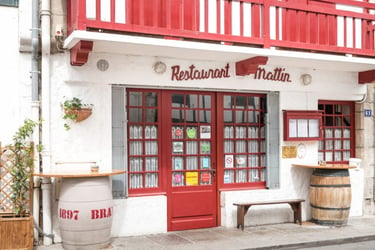

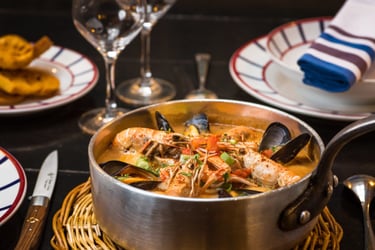

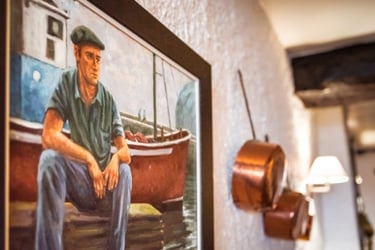

Chez Mattin à Ciboure
Situé sur les hauteurs de Ciboure, dans le quartier historique de la Croix Rouge. L’ancienne épicerie laisse place au restaurant dans les années 70.
Michel Niquet, le petit fils de la maison, perpétue les recettes familiales qui ont fait du restaurant un lieu incontournable de la cuisine basque. Grâce à son parcours et ses voyages le chef propose également une cuisine inventive et surprenante.
Chez Mattin le poisson est à l’honneur. De même, suivant les saisons Michel propose de belles suggestions inventives et raffinées. Donc ici pas de menus. Céline très pétillante, présente avec entrain les nouveaux plats à découvrir. Bref voici une adresse dont on se rappelle! Il est prudent de réserver.
Ladislas Olaizola éleveur et producteur à Urrugne.
Patrick et Bénèdicte Dagoret éleveur de cane Kriaxera à Irissary.
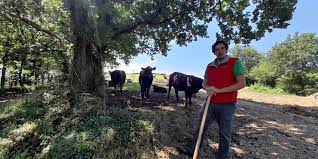

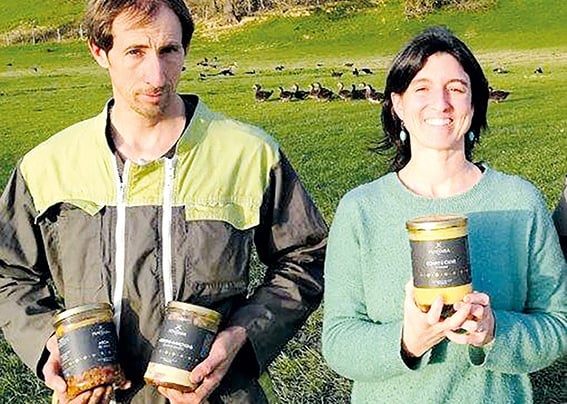


Niché au pied de la Rhune Sare (ou "Sara" en basque) est un charmant village qui incarne l'âme et les traditions de notre pays. Classé parmi les "Plus Beaux Villages de France", Sare séduit par ses maisons traditionnelles aux façades blanches et aux colombages rouges ou verts, typiques de l'architecture labourdine.
Le village s'articule autour du fronton, où se déroulent les parties de pelote basque et les festivités locales. Son église Saint-Martin, datant du XVIe siècle, domine le paysage avec son clocher imposant et ses galeries intérieures en bois.
Entouré de paysages verdoyants et montagneux, Sare est dominé par la silhouette majestueuse de la Rhune, montagne emblématique ( nous pourrions dire notre Everest) qui culmine à 905 mètres et offre une vue panoramique sur la Baie de St Jean de Luz et toute la côte Basque.
Ce territoire, riche de son patrimoine naturel et culturel, est celui de ce peuple basque que Voltaire décrivait poétiquement comme "un petit peuple qui danse au pied des Pyrénées", évoquant ainsi avec justesse la vivacité et la singularité de cette culture qui a su préserver ses traditions, sa langue millénaire et son identité à travers les siècles.
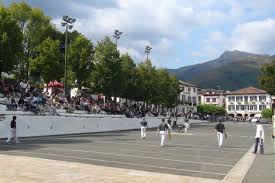

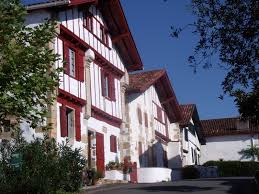

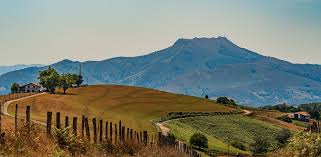

La Rhune
Partie de pelote sur le fronton de Sare
